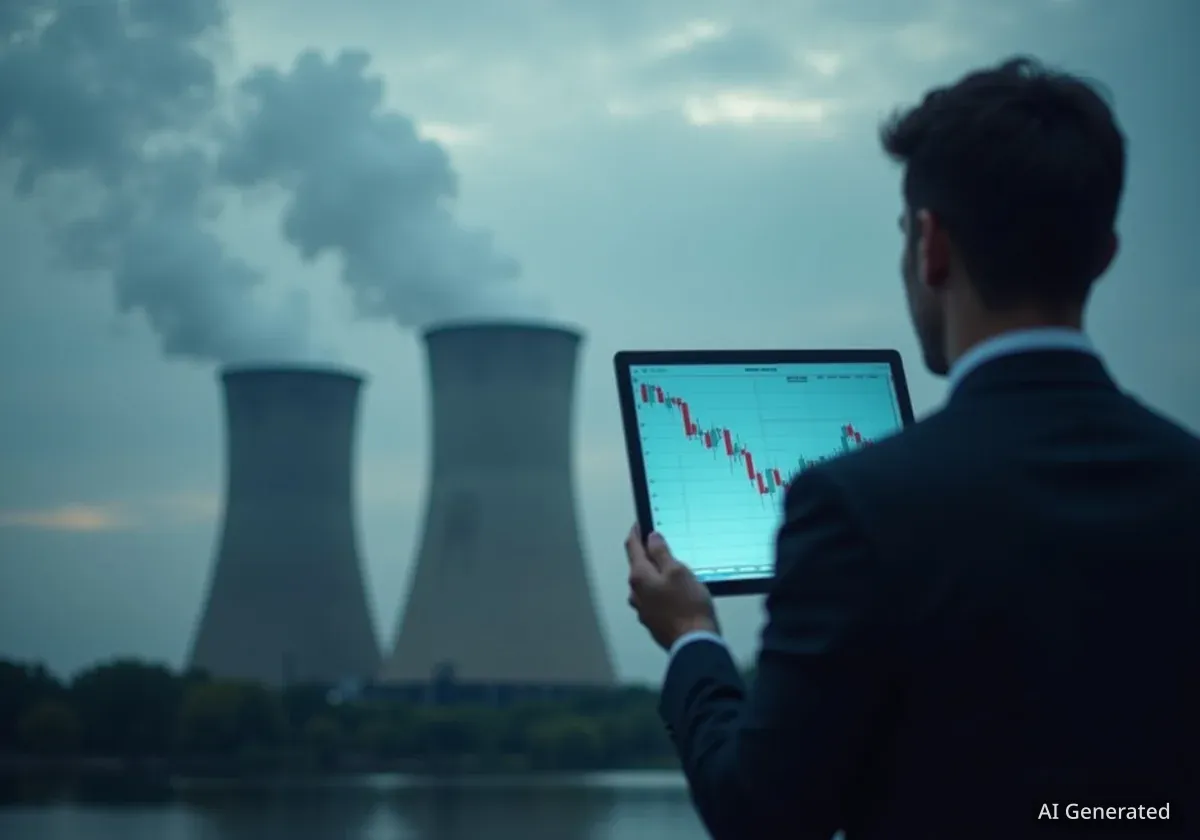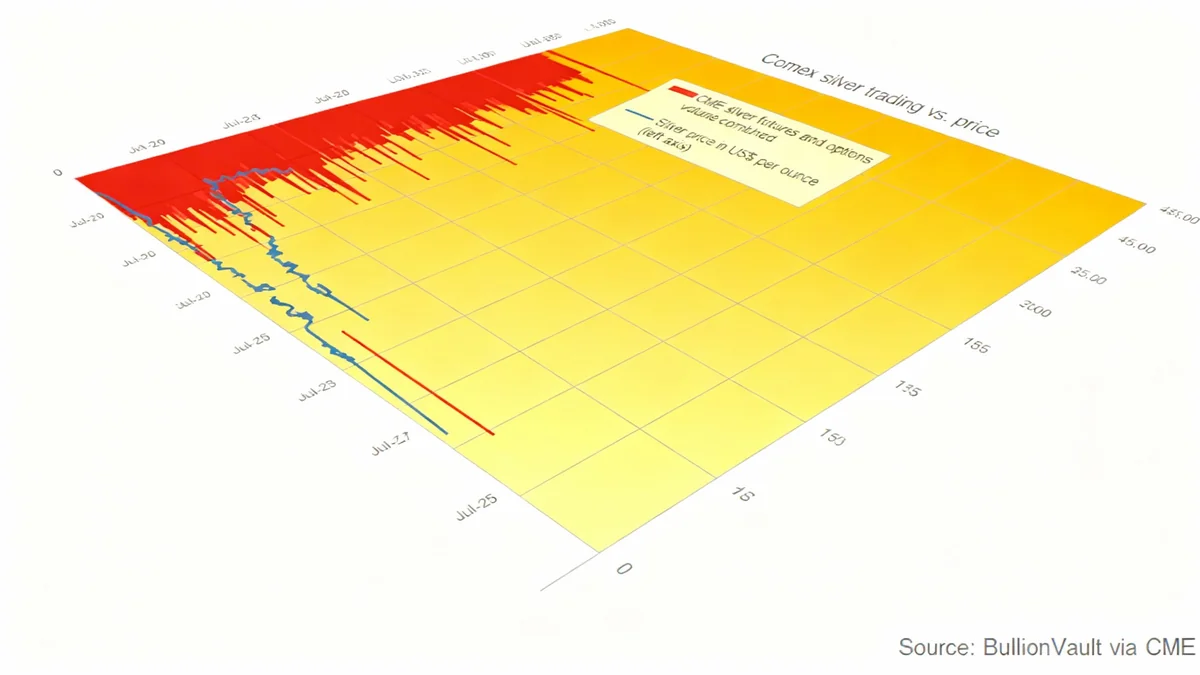NuScale Power (NYSE: SMR) is facing a period of intense investor scrutiny as conflicting financial signals create uncertainty around its stock valuation. Recent downgrades from major analysts, citing high capital requirements and project execution risks, contrast with optimistic commercial milestones, including a significant partnership to develop small modular reactors (SMRs).
This divergence has led to two competing narratives: one suggesting the clean energy company is undervalued with significant growth potential, and another arguing that its current stock price already reflects future optimism, leaving little room for error.
Key Takeaways
- Analyst Concerns: Financial institutions, including Bank of America, have downgraded NuScale Power, highlighting concerns over high capital intensity and risks associated with executing its SMR projects.
- Conflicting Valuation Models: One widely followed analysis suggests NuScale is 12.2% undervalued with a fair value of $41.69, while another points to a high price-to-book ratio that indicates a premium valuation.
- Major Commercial Partnership: A key agreement with the Tennessee Valley Authority (TVA) and ENTRA1 Energy to deploy up to 6 gigawatts of SMR capacity serves as a major validation of its technology.
- Market Performance: Despite the volatility and downgrades, NuScale has delivered a 1.95% total shareholder return over the past year, indicating cautious investor confidence.
Analyst Downgrades Raise Execution and Capital Concerns
NuScale Power has recently experienced increased market volatility following downgrades from influential financial institutions. Bank of America was among those that adjusted their rating, pointing to fundamental challenges facing the company as it moves from design to deployment.
The primary issues raised by analysts are high capital intensity and execution risks. Building new nuclear technology, even on a smaller scale, requires substantial upfront investment. Securing this funding and managing project timelines and budgets are significant hurdles that can impact future profitability.
Adding to the pressure, sales by major shareholders have contributed to the stock's unpredictable performance. These sales can signal a lack of confidence or simply be a strategic move, but they often create downward pressure on the share price in the short term. Despite these headwinds, the stock has managed to provide a modest 1.95% total return to shareholders over the last 12 months, suggesting that a segment of the market remains optimistic about its long-term potential.
Understanding Small Modular Reactors (SMRs)
Small Modular Reactors are advanced nuclear reactors that are significantly smaller than conventional ones. Their modular design allows for components to be factory-assembled and transported to a site for installation. This approach is intended to reduce construction costs and timelines while enhancing safety, making nuclear power more accessible and scalable for modern energy grids.
The Bullish Narrative Driven by Commercial Traction
Despite the cautious stance from some analysts, a strong bullish case for NuScale Power exists, centered on its commercial progress and the growing demand for clean energy. The most significant development supporting this view is the company’s partnership with the Tennessee Valley Authority (TVA) and ENTRA1 Energy.
This landmark agreement aims to deploy up to 6 gigawatts (GW) of NuScale SMR capacity, a substantial figure that validates the company's technology and signals real-world commercial traction. Such partnerships are crucial for demonstrating that SMR technology is not just theoretical but a viable solution for the future of energy.
Demand from Modern Industries
A major tailwind for NuScale is the rapidly increasing global demand for reliable, carbon-free baseload power. Traditional renewable sources like solar and wind are intermittent, whereas nuclear power provides a constant energy supply.
The International Energy Agency (IEA) projects that electricity demand from data centers, artificial intelligence, and cryptocurrency could double by 2026. This surge requires a massive increase in stable, clean power generation that SMRs are well-positioned to provide.
This demand is particularly acute from energy-intensive sectors like data centers and artificial intelligence (AI), which require uninterrupted power to operate. As these industries expand, the need for dependable, non-fossil fuel energy sources is expected to grow exponentially, creating a significant market opportunity for NuScale's SMRs.
A Tale of Two Valuations
The debate over NuScale's future is clearly reflected in its conflicting valuation metrics. Investors are left to weigh a narrative of potential undervaluation against metrics that suggest the stock is already priced for success.
The Undervalued Argument
The most optimistic financial model places NuScale's fair value at $41.69 per share. Compared to its recent closing price of $36.61, this suggests the stock could be approximately 12.2% undervalued. This valuation is built on several key assumptions:
- Aggressive Growth Forecasts: Analysts expect the company to capture a significant share of the emerging SMR market.
- High Operating Margins: The model assumes NuScale will achieve industry-leading profitability once its reactors are operational.
- Favorable Valuation Multiples: It projects a future valuation multiple that is high relative to the broader electrical industry.
However, this bullish outlook is highly dependent on the company successfully navigating its current challenges. Any significant delays in securing power purchase agreements or funding could undermine these optimistic forecasts.
The Premium Valuation Perspective
A more cautious analysis focuses on the company's price-to-book (P/B) ratio. This metric compares a company's market capitalization to its book value, which is the value of its assets minus liabilities.
"Looking at valuation through the price-to-book lens, NuScale trades at 7.1 times book value, which is clearly above the US Electrical industry average of just 2.3 times."
NuScale’s P/B ratio of 7.1x is more than three times the industry average of 2.3x. While this is lower than the peer average of 19.2x for similar high-growth technology firms, it still indicates that investors are paying a significant premium for the company's future growth potential.
This elevated ratio implies that much of NuScale's anticipated success is already factored into its current stock price. If the company fails to meet its ambitious goals or faces unforeseen setbacks, there could be limited room for further upside and a higher risk of a downward correction.
Navigating Future Risks and Opportunities
For investors, the central question is whether NuScale Power's technological promise and commercial partnerships justify its premium valuation and the inherent risks. The path forward is contingent on several factors.
The company must successfully transition from planning to execution, delivering its SMR projects on time and within budget. Securing firm power purchase agreements (PPAs) and long-term funding will be critical milestones that the market will watch closely. Continued policy support for nuclear energy from governments worldwide will also play a crucial role in the company's long-term success.
As the energy transition accelerates, NuScale Power remains a key player in the advanced nuclear sector. However, the contrast between its operational hurdles and its market valuation highlights the high-stakes environment in which it operates. The coming months will be pivotal in determining whether the bullish or bearish narrative prevails.





